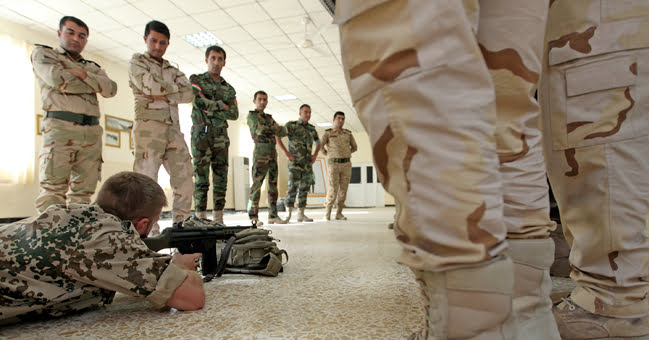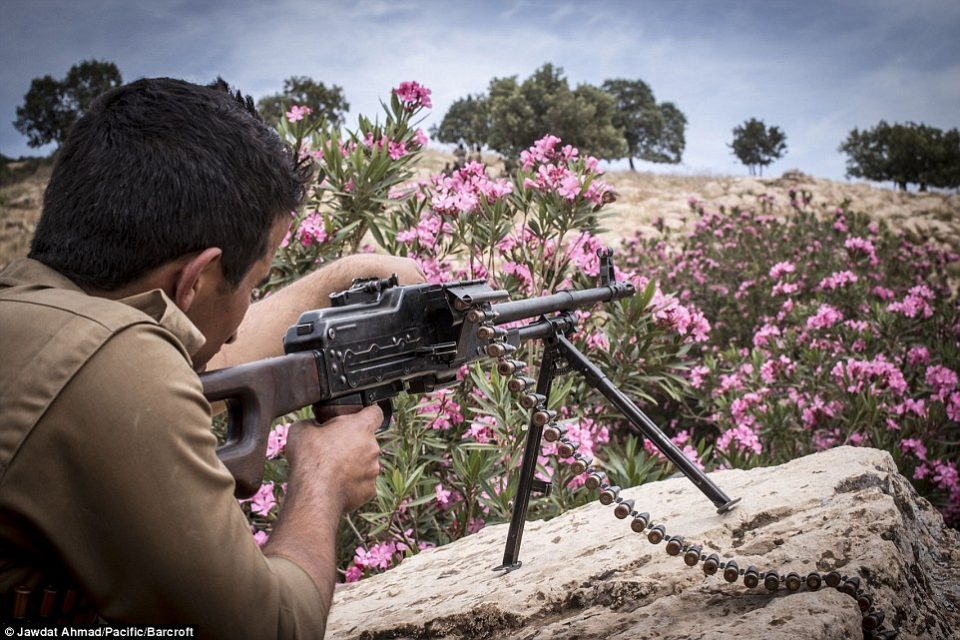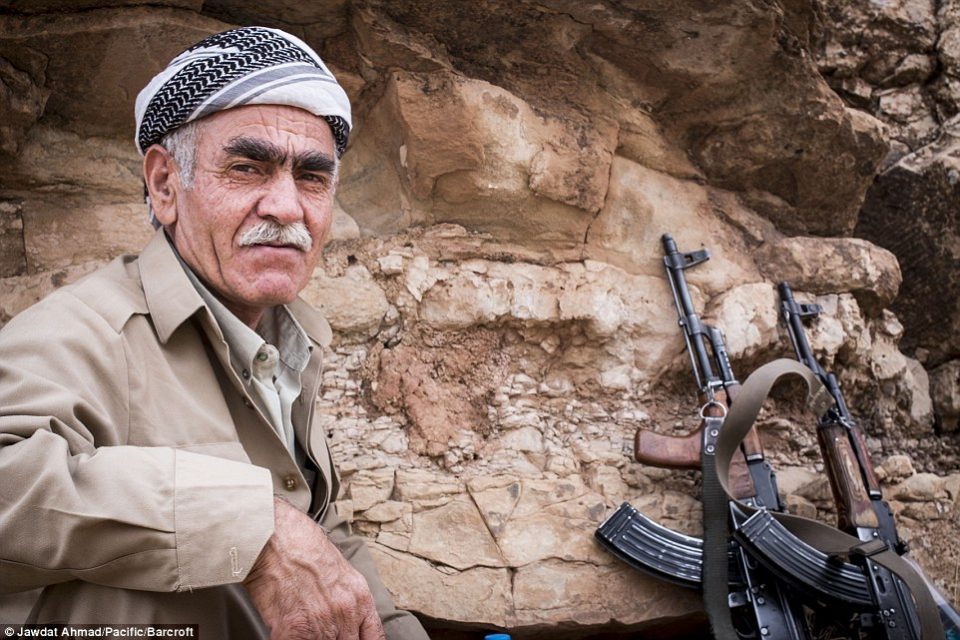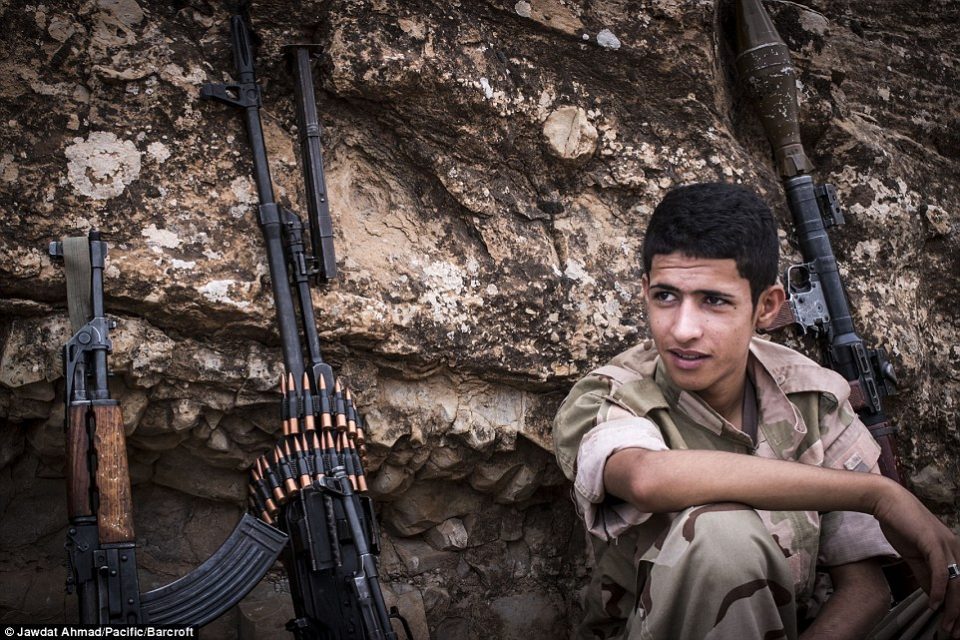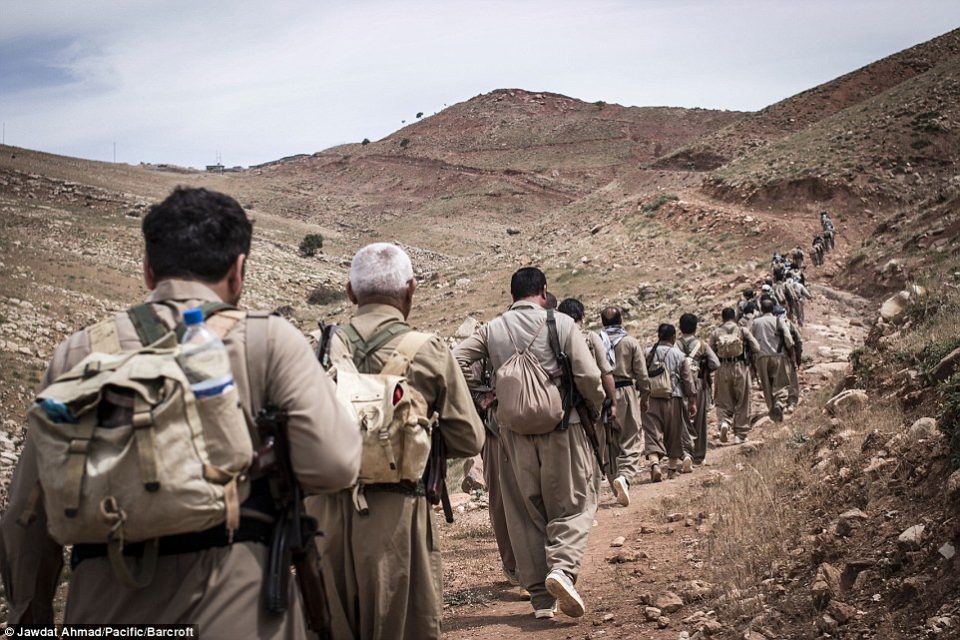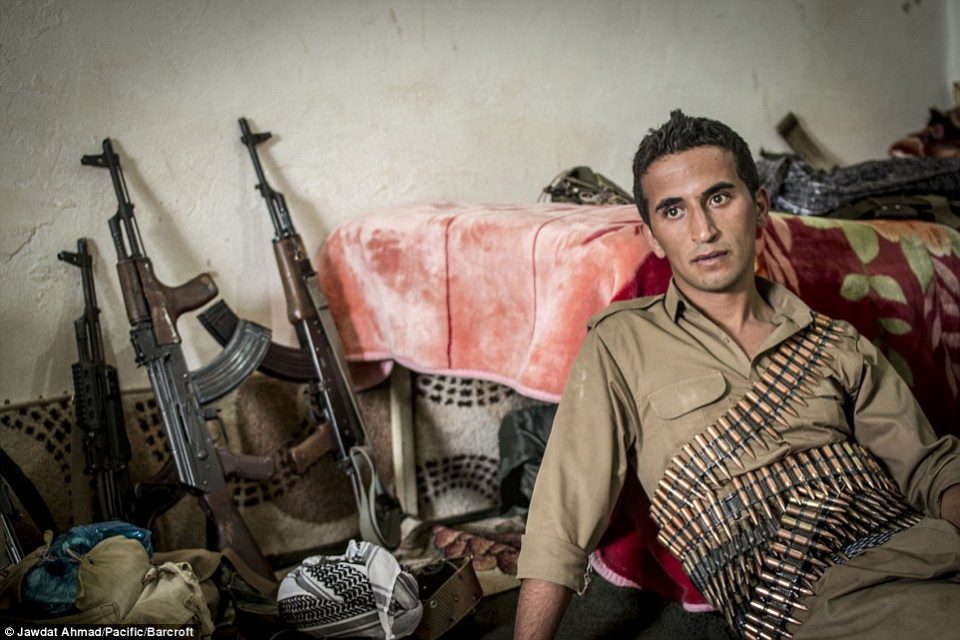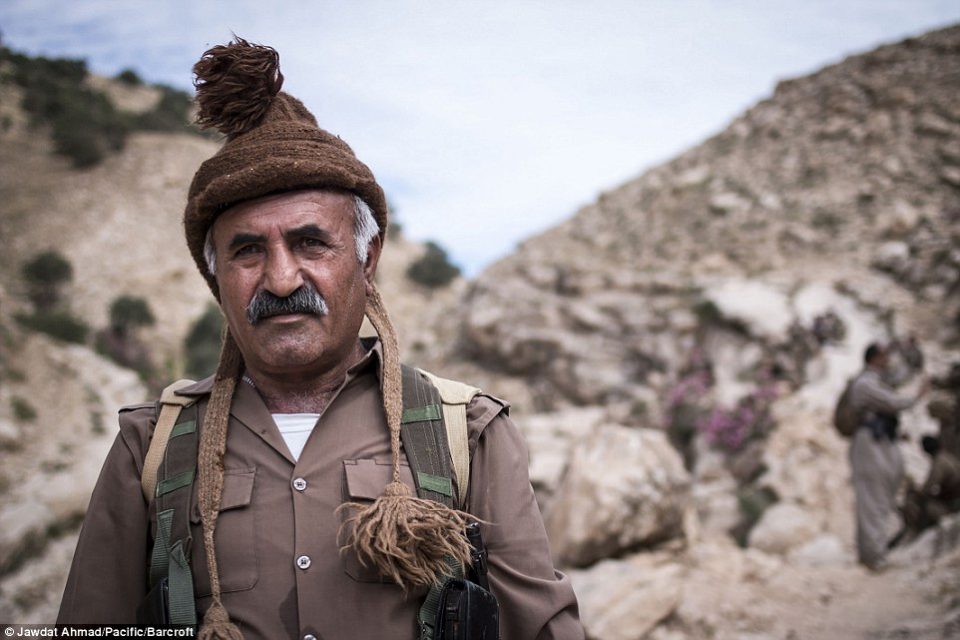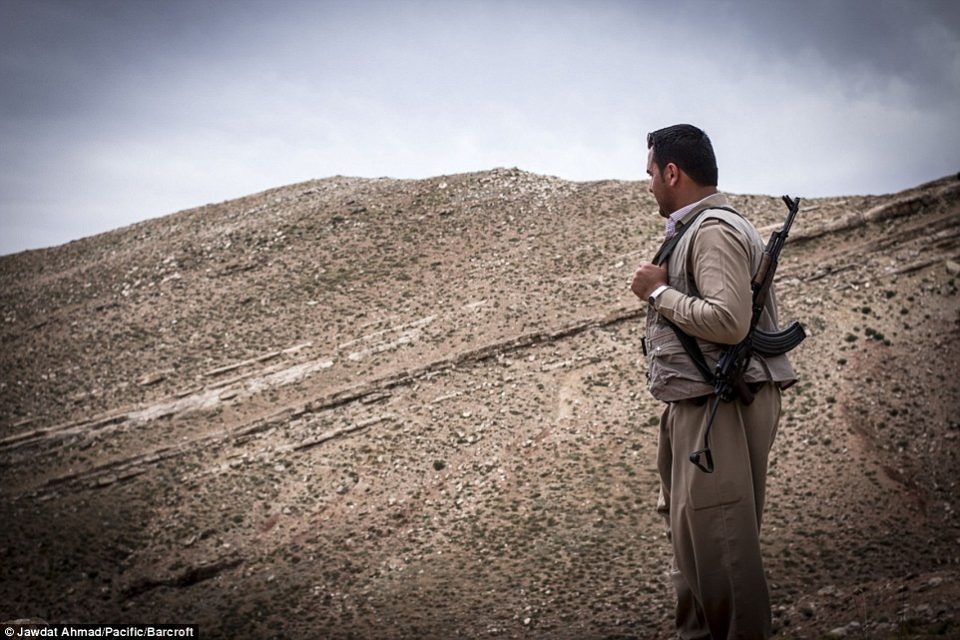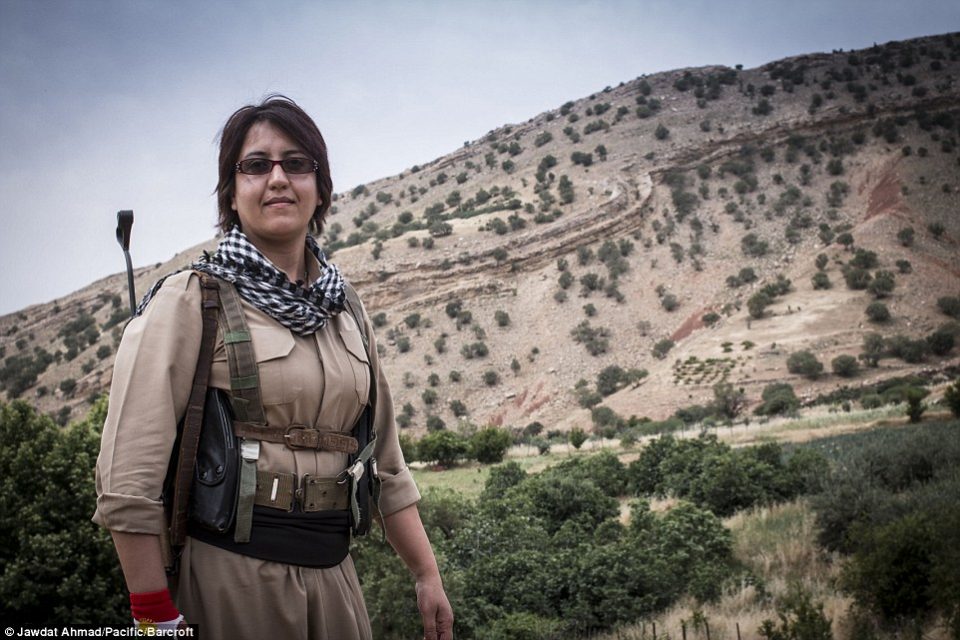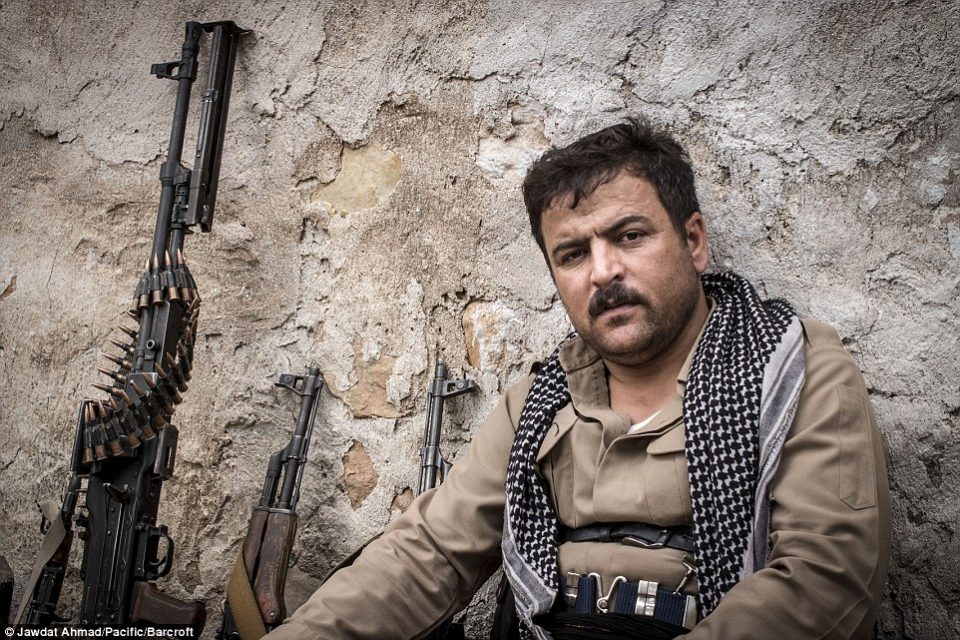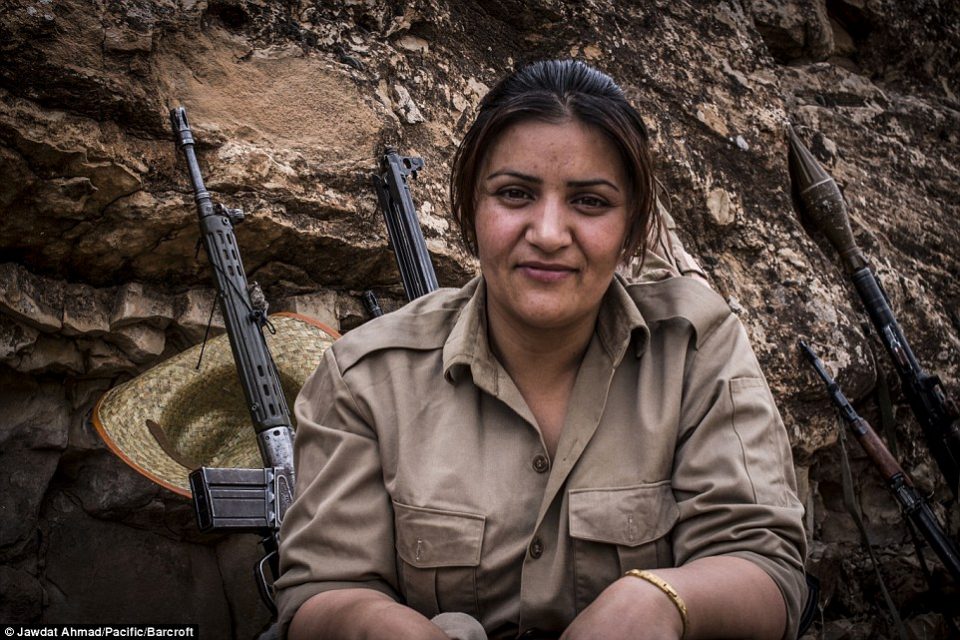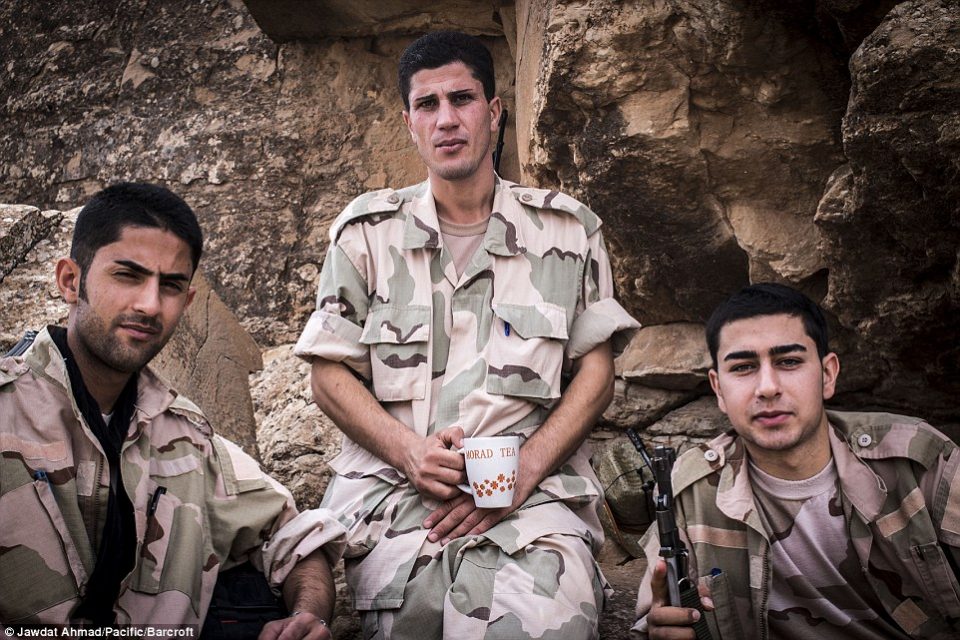01/22/2015: Earlier, we have argued that the training of the Peshmerga is a significant element of not only defeating ISIS but in building a post-Baghdad transition in Iraq.
Here we are providing a series of updates on that training effort, being engaged in by the United States and several key allies.
In this video from the Combined Joint Task Force-Operation Inherent Resolve, training is seen provided on gas masks and various weapons.
The video is dated 1/20/16.
According to a December 18, 2015 story published by the US Department of Defense about the training of Peshmerga:
WASHINGTON, December 18, 2015 — Kurdish Peshmerga fighters are rotating through coalition training in northern Iraq at the rate of 800 personnel every 25 days, enabling them to continue their fight against the Islamic State of Iraq and the Levant with minimal interruption, the commander of the Kurdistan Training Coordination Center said yesterday.
Speaking to reporters traveling with Defense Secretary Ash Carter, German army Col. Bernd Prill described the type of instruction the Peshmerga receive at the training center.
Located in northern Iraq, the center is staffed by seven coalition countries — Germany, Italy, Norway, the United Kingdom, Finland, the Netherlands and Hungary — and works with Peshmerga units to improve their capabilities, Prill said.
The troops receive basic infantry training, including individual combat skills, squad tactics, and company maneuvers, Prill explained. The training also includes counter-improvised explosive device training, sniper training and combat life-saving medic courses. “We train them on offense and defensive operations … in rural areas and urban areas,” the colonel said.
The center also holds special courses for Peshmerga officers, he said, up to the battalion level.
Overall, the center has trained some 8,000 Peshmerga fighters, who’ve then returned to the 1,200-kilometer front line to fight ISIL.
And in a recent article published January 15, 2016 on Rudaw which is a Kurdish media network funded and supported by the Rudaw company:
A Peshmerga Ministry official told Rudaw that the United States has promised to equip and train the Peshmerga the same as a US army brigade.
Advanced weapons and training will be provided in the Kurdistan Region where US and Western military advisors are working closely with Kurdish forces in fighting the Islamic State (ISIS).
Germany, Italy, Canada and other Western powers have helped the Peshmerga.
The German military has provided anti-tank Milan missiles which have proven deadly accurate against ISIS suicide trucks.The Canadian military has provided mine detecting and bomb disposal robots.
The US, UK and France have also supported the Peshmerga with air strikes in most of their offensives against ISIS, especially for the capture of the Kurdish Yezidi town of Shingal in November.
And recently, the Federal Republic of Germany announced their continued support for training and supporting Peshmerga.
According to a piece published January 6, 2016 on the website of the Federal Government of Germany:
Germany is stepping up its fight against the terrorist organisation IS. Up to 150 German soldiers are to train Peshmerga fighters and members of the Iraqi security forces. The German Bundestag must still approve the Cabinet decision.
The German government is to expand the action it is taking against the IS terrorist organisation. For one year Bundeswehr troops have been providing support in the form of training for security forces around Erbil in northern Iraq. This mission is to be extended for another year. The motion must still be approved by the German Bundestag.
The Bundestag mandate is to be extended until 31 January 2017, and the ceiling on troops is to be raised from 100 to 150 soldiers.
Joint action against terrorism
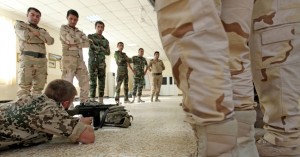
The terrorist organisation IS has become a global threat to peace and security. The terrorist attacks in Tunisia, Turkey, Lebanon, against Russia and in France provide ample evidence of the threat to world peace. The UN Security Council has already noted this in various resolutions, most recently in November 2015.
The United Nations Security Council called on the international community to take all necessary steps to prevent the terrorist activities of IS.
Strengthening the ability of Iraqi authorities to ensure security
One core element in the fight against the IS is the development of permanent capacities within the Iraqi security forces and the Peshmerga, the security forces of the regional government in the Kurdish region of northern Iraq.
Since the multinational training mission began on 15 February 2015 around Erbil, more than 4,800 members of the security forces have undergone training in northern Iraq and in Germany, in line with the German government’s principle of ensuring that all population groups are involved in training.
Germany’s armed forces are acting within the framework and in line with the rules of a system of collective security as laid out in Article 24.2 of the German Basic Law or constitution.
Training centre in Erbil
The training support is centred on the area in and around Erbil. Under exceptional circumstances troops can also be deployed outside this immediate region, for purposes of consultation and coordination across the entire Iraqi territory.
In addition, a limited number of German troops will continue to be assigned to staff units of the international alliance against the IS, mainly in Iraq and Kuwait.
Further support planned
The Peshmerga and the security forces of the Iraqi central government are also to receive more military equipment. Only well equipped and well trained troops can hold their own against the IS.
In addition to training and equipment, Germany is considering treating wounded members of the security forces in Germany and offering air transport for the wounded.
And in a story published on July 21, 2015, the Daily Mail provided photos which told a lot about the Peshmerga and their training.
And some of those photos are seen in the slideshow above.
And with the arrival of the A-29s in Afghanistan it may well be time to look at a similar Kurdish opportunity.
Close air support in the context of the fight against ISIS is about providing support for those forces on the ground engaged in the fight against ISIS.
A key force in the fight is the Peshmerga who clearly need supplies and air support to enhance their effectiveness against the radical Islamic force.
The discussion of how to provide CAS is not simply a technical issue of providing JTACs and US or allied airpower; it is about positioning support in a way that the forces on the ground, in this case the Peshmerga can see strategic as well as tactical support.
As Joseph Kassad suggested in a recent interview:
The problem for the US and its allies is simply that the Peshmerga know how to fight; the Iraqi government does not.
Now the US is using Turkish bases to prosecute the fight, but Turkey is at best an ambiguous player in this fight, and certainly is no friend of the Kurds.
Kassab added that the President of Kurdistan has offered a former Iraqi air base to the US and its allies from which to fight ISIS, a move which would not only reinforce the relationship with Kurdistan but be recognized instantly by ISIS as a significant threat to their activity in Iraq.
“We really do prefer that we use it for the Kurdistan itself rather than coming from Turkey because this will give a lot more strength to the Kurds.”
Such a base would be far enough from indirect fire weapons yet close enough for CAS and perhaps a Forward Operating Base (FOB) for helos as well.


